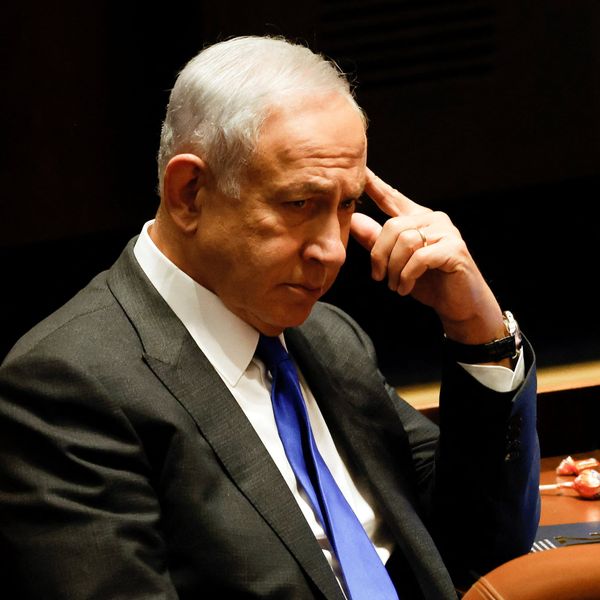Pakistan’s Senate seeks interior ministry's reply on controversial VPN ban
Senate standing committee on IT has summoned Ministry of Interior to provide detailed response before Nov. 30

Javed Hussain
Correspondent
I have almost 20 years of experience in print, radio, and TV media. I started my career with "Daily Jang" after which I got the opportunity to work in FM 103, Radio Pakistan, News One, Ab Tak News, Dawn News TV, Dunya News, 92 News and regional channels Rohi TV, Apna Channel and Sach TV where I worked and gained experience in different areas of all three mediums. My journey from reporting to news anchor in these organisations was excellent. Now, I am working as a correspondent with Nukta in Islamabad, where I get the opportunity of in-depth journalism and storytelling while I am now covering parliamentary affairs, politics, and technology.

The Ministry of Interior’s letter to PTA regarding VPN bans sparked a heated debate.
Shutterstock
Senate demands VPN ban explanation by November 30
VPN misuse cited for terrorism and illicit activities
Freelancers risk losing $2b industry amid bans
PTA urged to regulate, not disrupt, VPN useA parliamentary committee in Pakistan has on Monday demanded a response from the Ministry of Interior regarding its directive to the Pakistan Telecommunication Authority (PTA) to whitelist or ban Virtual Private Networks (VPNs) in the country.
Last week, the Ministry of Interior directed PTA to block unauthorized VPNs, citing national security concerns and alleged misuse by terrorist groups.
The ministry highlighted that VPNs are being exploited by terrorist organizations to conceal identities and facilitate secure communication. According to the ministry, unauthorized VPNs are reportedly being used for illicit financial transactions and aiding in terror-related activities.
The ministry further claimed that VPNs also enable access to content deemed inappropriate or blasphemous within Pakistan, presenting additional challenges to law enforcement.
The Senate Standing Committee on Information Technology and Telecommunication reviewed the issue during a meeting chaired by Senator Palwasha Khan on Monday.
Officials from the Ministry of IT and PTA briefed the committee on VPN regulations and their implications. Senator Palwasha Khan criticized the absence of Minister of State Shaza Fatima Khawaja and IT Secretary.
“The internet is crucial for our youth’s employment, yet disruptions persist. We will take this matter to the Prime Minister if responses remain delayed,” said Khan.
Internet and VPN issues
The Ministry of Interior’s letter to PTA regarding VPN bans sparked a heated debate. Senator Afnanullah Khan called for clarity, noting, “VPNs are vital for businesses, especially freelancers. The Ministry must address this issue transparently.”
Committee members also expressed concerns over the Council of Islamic Ideology (CII) labelling VPNs as "un-Islamic." “Religion is being misused as a pretext for censorship,” Khan said, urging an in-camera briefing if necessary.
PTA Chairman Major (retd) General Hafeezur Rehman stated, “The IT industry relies on VPNs, especially freelancers. Thousands of VPNs have been registered, and legitimate users won’t face disruptions if they comply.”
He added that Pakistan has 27 major VPNs, and efforts to block inappropriate content through VPNs have faced challenges.
Economic fallout of VPN bans
The IT Ministry highlighted that freelancers earn about $400 annually, with over a million depending on VPNs for work. “Blocking VPNs without alternatives could harm Pakistan’s $2 billion freelancing industry,” officials warned.
Senator Afnanullah emphasized that blocking VPNs violates the Prevention of Electronic Crimes Act (PECA) and could disrupt critical services.
The committee has summoned the Ministry of Interior to provide a detailed response before November 30.
WISPAP’s stance
In a separate statement released on Monday, the Wireless & Internet Service Providers Association of Pakistan (WISPAP) urged a balanced approach.
“VPNs are vital for privacy and economic growth. Regulatory measures must avoid harming legitimate users,” said the WISPAP Chairman.
The VPN debate is part of a larger conversation on internet regulation in Pakistan, where outages, censorship, and surveillance concerns have raised questions about digital freedoms and economic growth.
The next meeting will determine whether regulatory measures can balance national security with the needs of freelancers and businesses.






Comments
See what people are discussing